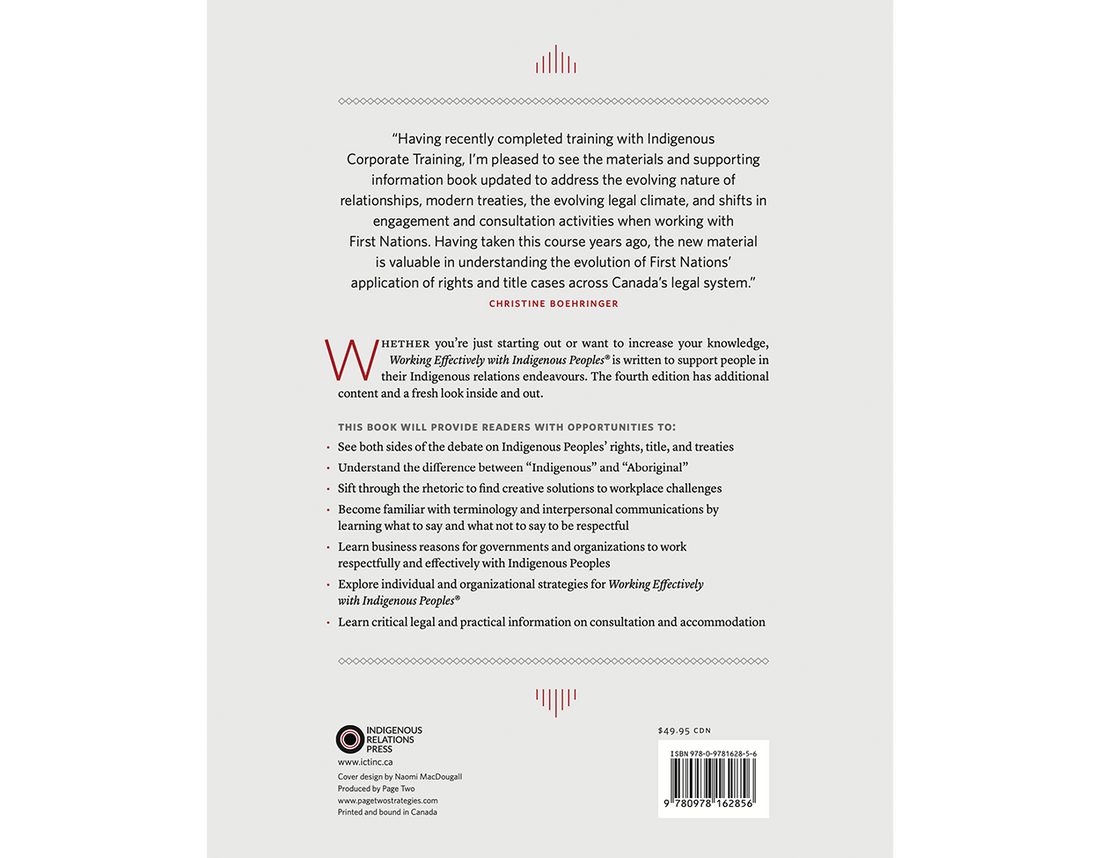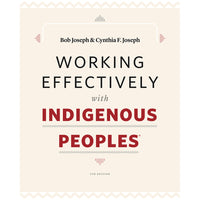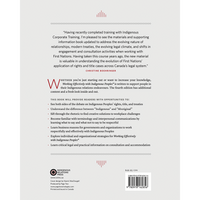Working Effectively with Indigenous Peoples®, 5th Edition




Working Effectively with Indigenous Peoples®, 5th Edition
by Bob Joseph and Cynthia F. Joseph
You can also order paperback and Kindle formats at:
This page is for BC Assessment team members and learners with the appropriate discount code.
At Indigenous Corporate Training Inc. our mission is to support people in their Indigenous relations endeavours. We help individuals and organizations work effectively with Indigenous Peoples including Indian, Inuit, and Métis Peoples.
In this short video, Bob Joseph provides some of the content from the book in a presentation at the Vancouver Board of Trade.
Working Effectively with Indigenous Peoples® 4th edition expands upon the previous editions with additional content, insight, our trademarked RESPECT training model, and suggestions on what one should do and what one should avoid doing when communicating and working with Indigenous Peoples. As subject matter experts with over 20 years of experience we literally "wrote the book" on how to work effectively with Indigenous Peoples. Over 14,000 people purchased copies of the 3rd edition and we have received feedback that ranges from, "an easy read" to "it’s very helpful", to "I lent my copy out and it didn’t come back so I’m ordering another copy."
Having recently completed training with Indigenous Corporate Training, I’m pleased to see the materials and supporting information book updated to address the evolving nature of relationships, modern treaties, the evolving legal climate, and shifts in engagement and consultation activities when working with First Nations. Having taken this course years ago, the new material is valuable in understanding the evolution of First Nations’ application of rights and title cases across Canada’s legal system.
Christine Boehringer
In just some of its pages you will learn:
- about Indigenous history from a scientific and cultural perspective
- about Aboriginal rights and Aboriginal title
- about terminology including First Nation, Indian, Aboriginal Peoples, Native, Metis, Indigenous Peoples, Inuit
- Free, Prior and Informed Consent and whether that creates a veto for Indigenous Peoples
- proven techniques for learning how to pronounce the names of communities
- 27 things to do and 21 things not to do when working with Indigenous Peoples
- 6 colloquialisms to avoid in your communications
- 2 terms you should never use in work
- insights for determining if gifts are expected and what to bring
- a key cultural consideration to keep in mind when working with societies
- one key question you should always ask when meeting Indigenous Peoples
- 2 different ways to do protocol depending on who you are working with
Our goal with our training, and this book, has always been to increase readers’ Indigenous awareness and cross-cultural understanding, provide context, and give readers some practical hints, tips and suggestions that can be applied everywhere.
Bob Joseph, the founder of Indigenous Corporate Training Inc. and primary author, has provided training on Indigenous relations for over 20 years and has assisted thousands of individuals and organizations in their endeavour to develop positive, respectful and sustainable Indigenous relations. His Canadian clients include all levels of government, Fortune 500 companies, financial institutions, including the World Bank, small and medium-sized corporate enterprises, and Indigenous Peoples. He has worked internationally for clients in the United States, Guatemala, Peru, and New Caledonia in the South Pacific. In 2006, Bob facilitated a worldwide Indigenous Peoples’ roundtable in Switzerland which included participants from the United Nations, Australia, New Zealand, North, Central and South America, Africa, and the Philippines.
Bob has worked as an associate professor at Royal Roads University in their Indigenous Relations program. In addition, he is routinely a guest lecturer at other academic institutions. He has an educational background in Business Administration and International Trade, and is a certified Master Trainer who in May of 2001 was profiled in an annual feature called, “Training: the New Guard 2001” by the American Society of Training and Development (ASTD) in their prestigious Magazine, “T + D”. Bob was one of nine trainers selected for the feature from over 70,000 members who come from more than 100 countries and 15,000 organizations.
Bob is an Indigenous person, or more specifically, a status Indian, and is a member of the Gwawaenuk Nation. The Gwawaenuk is one of the many Kwakwaka’wakw tribes located between Comox and Port Hardy on Vancouver Island and the adjacent mainland of British Columbia. He is an initiated member of the Hamatsa Society and the son of a hereditary chief who will one day, in accordance with strict cultural laws, become a hereditary chief.
Fees are refundable or refundable less a fee if the training has not been started or books used. To read the details please see our full Refund Policy.


